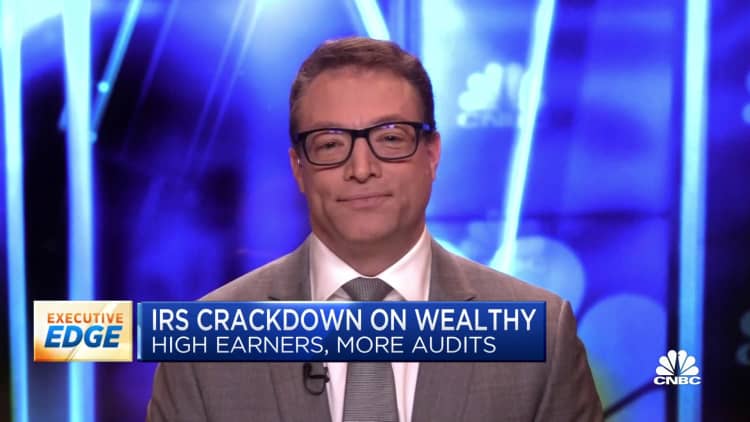[ad_1]
Senate Finance Committee Chairman Ron Wyden, D-Ore., questions IRS Commissioner Charles Rettig at a Senate Finance Committee hearing.
Tom Williams | Pool | Reuters
President Joe Biden’s nominee to lead the IRS answered questions during a Senate Finance Committee hearing this week, highlighting key issues from lawmakers on both sides of the aisle.
Daniel Werfel, a former budget official and private sector leader, fielded questions Wednesday about the agency’s funding, enforcement, transparency and other priorities.
“I think there’s quite clearly a respect for Danny Werfel and recognition that he’s going to go through,” said Mark Everson, a former IRS commissioner and current vice chairman at Alliantgroup.
While there’s still time for questions, Everson expects a full Senate vote and confirmation to come “in a matter of weeks.”
Here are some of the key takeaways from the hearing.
Scrutiny of $80 billion in IRS funding will continue
The nomination comes at a critical time for the beleaguered agency, which is getting $80 billion in funding over the next decade in August as part of the Inflation Reduction Act.
After months of scrutiny, House Republicans voted to rescind the funding in January, which was largely seen as a political messaging bill without the votes to pass in the Senate or support from the White House.
If I am fortunate enough to be confirmed, the audit and compliance priorities will be focused on enhancing IRS’ capabilities to ensure that America’s highest earners comply with tax laws.
Daniel Werfel
IRS Commissioner nominee
“Just because [Werfel’s hearing] was smooth doesn’t mean there won’t be a fairly charged environment with the House in Republican hands and the election coming,” Everson said.
The agency is expected to deliver the $80 billion funding plan on Friday per Treasury Secretary Janet Yellen’s request.
Audit rate won’t rise for those making under $400,000
Following a directive from Yellen, Werfel vowed not to increase audit rates for small businesses and households making under $400,000, relative to recent years.
“If I am fortunate enough to be confirmed, the audit and compliance priorities will be focused on enhancing IRS’ capabilities to ensure that America’s highest earners comply with tax laws,” Werfel said in his opening statement.
Tax enforcement fairness is a key issue

Senate Finance Committee Chair Ron Wyden, D-Ore., kicked off the hearing by emphasizing the Inflation Reduction Act’s goal of providing resources to achieve fairness in tax enforcement, aiming to “go after tax cheating from the big guys.”
Wealthy Americans have increasingly seen fewer audits after years of budget cuts. During fiscal 2022, millionaires faced a 1.1% chance of an IRS audit, according to a recent report from Syracuse University’s Transactional Records Access Clearinghouse.
Meanwhile, the audit rate has declined more slowly for lower earners claiming the earned income tax credit, and Black Americans are roughly three to five times more likely to face an IRS audit than other taxpayers, according to a recent study.
If poor people are more likely to be audited than the wealthy, Werfel said it “potentially degrades public trust and needs to be addressed within the tax system.”
Angelique Neal, a tax attorney at Dickinson Wright, said Werfel “seems committed” to addressing these audit disparities to ensure fairness and equitable treatment for all taxpayers.
Building trust is “one of the foundations of government,” especially for an agency tasked with collecting the vast majority of revenue, said Neal, who previously served as a senior trial attorney in the office of chief counsel to the IRS.
[ad_2]
Source link
